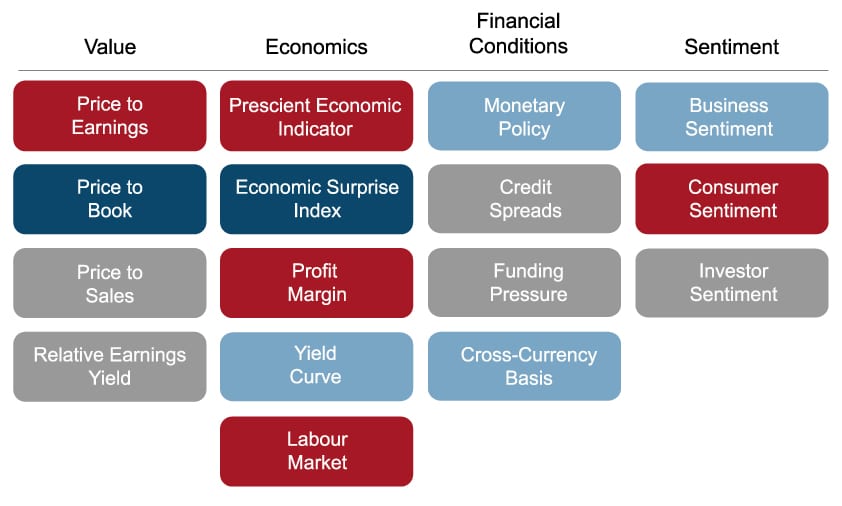Prescient briefing: Stripping out misleading emotions with systematic investing
By Christian Eedes, 2 November 2020

Prescient’s Bastian Teichgreeber.
Sponsored – the following by Bastian Teichgreeber, Head of Asset Allocation at Prescient Investment Management:
As we head into the final straight of the US election trail, volatility is likely to be elevated and financial markets even more unpredictable than they have been this year as the two candidates vie for the Presidency. Inevitably South African financial markets will get caught up in the turbulence.
Systematic investing allows investors to see through that noise by not making emotionally-based decisions and following a disciplined, rule-based approach to investing. But how does it work – and why does it compare so favourably to other ways of investing?
Instead of judging markets in a discretionary fashion, systematic investing seeks out trading rules that can be profitable if applied consistently. So, in other words, it means going with the empirical evidence and less so with individual judgement.
The empirical evidence used to drive investment decision making is based on a set of factors that can be distilled down to valuations, economics, financial conditions and sentiment. As the image below shows, these factors are based on a range of other underlying measures that give a deep, as well as broad-based, picture of prevailing financial market risks and opportunities.

The composition of these indicators is then set against the history of expected returns. For example, when we enter a period of stretched valuations, low economic growth, tight financial conditions and deteriorating sentiment, these factors enable us to make a statistical assessment of what this means for future returns of any individual asset class. Thus we can make a statement on not only whether the expected return of this asset class in such a scenario is naturally higher or lower, but also whether it is riskier in general and whether it comes with more, or fewer, tail events/risks. The outcomes of this process increase the odds of achieving a high hit ratio in the tactical asset allocation tilts introduced to investment portfolios.
The COVID crisis that overshadowed economies and financial markets this year has provided a useful test of the efficacy of systematic investing. No investment approach, including a systematic approach, can predict the advent of a virus. On top of this, equity returns have been exceptionally strong during a period where they have been expensive and economic output has dropped significantly. To date, a systematic investment approach has fared well, with the robust risk management systems, structured within-asset-class-alpha and strategic allocation delivering as expected.
The ability to navigate through the most profound drop in economic output in living memory and one of the strongest equity market rally in history during the second quarter of this year highlights the importance of investment processes designed to weather any market conditions. Yes, there are periods which are particularly challenging and difficult to capture in systematic models. But tight risk management, relying on portable alpha and optimised strategic asset allocation still works in favour of delivering fund returns. Not to mention the positive impact low fees have on net performance delivered to clients.
As the investment environment becomes increasingly complex to navigate, and bigger data sets become available, systematic investing is well-positioned to become the way of the future investing. It has proven it delivers not only more predictable investment outcomes but also superior returns compared to many of the other investment approaches out there.
It delivers more predictable outcomes because it enables investment managers to calculate the odds of a successful trade beforehand, thereby knowing the probability of success. Once establishing this, decisions are taken based on predefined trading banks so the investment manager knows everything about the added variance that will be introduced into the portfolio. Adherence to a strict, systematic risk management process also ensures that the maximum loss is quantified beforehand.
Systematic investing shouldn’t be confused with passive investing. It is as active as any other active investment approach and doesn’t mean fewer tilts, less trading, or less willingness to express views. Expressed views are more science than art; founded on, and backed by, the numbers.
Where systematic differs from active investing is that asset allocation tilts take place within a predefined bandwidth. Risk management is more pronounced, and the probability of success of the trade is calculated beforehand. Unlike active asset managers, systematic investors don’t engage in the selection of individual shares, but rather in an enhanced indexation process.
While there is room for both active and passive investment approaches, a systematic approach gives investors the best of both worlds. It delivers all the advantages of a purely passive strategy, namely low fees, low transaction costs and a low tracking error. It also gives investors the best elements of an active process, namely within-asset-class-alpha, the efficient allocation of capital and the opportunity to benefit from significant market dislocations.
If this year has shown anything, it is that giving into emotions and human biases like fear and greed do not serve investors well in the longer term – in fact, it can prove extremely costly. Systematic investing eliminates these shortcomings.
To know more about any of Prescient’s products and services, click here.
To read more about Prescient’s involvement with this site, click here.
Disclaimer: Prescient Investment Management (PIM) is as an independent investment management company specialising in portfolio and risk management. PIM offers innovative solutions that focus on managing absolute and relative downside risk specific to their clients’ needs. Although their investment approach has remained largely unchanged over time, PIM solutions have evolved to include access to new and diversified markets and on managing fees in investment portfolios. Prescient Investment Management (Pty) Ltd is an authorised financial services provider (FSP 612). The value of investments may go up as well as down and past performance is not necessarily a guide to future performance. Some representatives may be acting under supervision.







Comments
0 comment(s)
Please read our Comments Policy here.